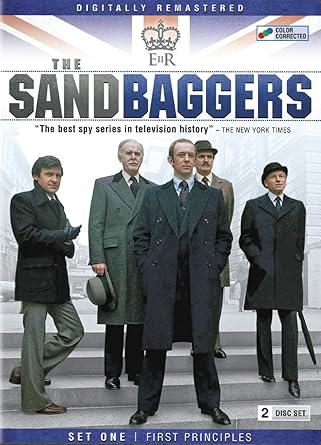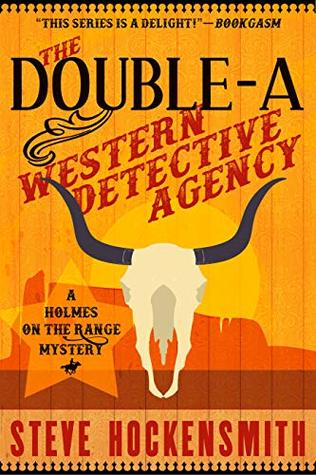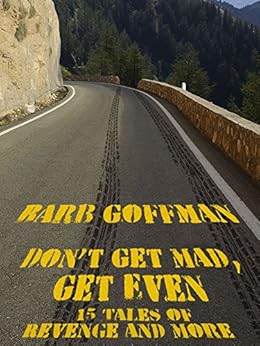by Brian Thornton
So here I was, sitting on an "Origins of Boxing Day" post, all pleased with myself that I had something cued up well in advance of my next post, when I see that:
1. My post drops the day
after Boxing Day.
AND
2. My predecessor in our little rotation, David Edgerley Gates, already
nailed a Boxing Day background post right
here.
S'okay. I'm fifty-three, with a six-year-old kid. I'm nothing if not adaptable.
So rather than fall back on an "end of year" list (Already did that
here.), I'm gonna share my writing resolutions (following in the footsteps of my old friend Steve Hockensmith, who announced his
here. Congrats on getting that new book out there for sale, Steve. I just went to Amazon and bought my copy!).
Writing-wise 2018 for me was a lot like a duck paddling across a placid pond. Nothing much happening on the surface, but a ton of frenetic movement just out of sight, below the waterline.
I have three projects scheduled to drop in 2019: two volumes of crime fiction inspired by the music of jazz-rock legends Steely Dan (I wrote a story and am curating the project.) and a volume of three thematically-linked novellas.
Their pub dates are: June 1 (first volume of the anthology), late September/early October (for both the second anthology volume and the novella collection– well in time for Bouchercon).
The relevance of this? Well, it leads to my first writing resolution for 2019:
Have a Plan.
I spent the last half-decade keeping my hand in, as it were, but really, my son and other family concerns demanded a fair amount of available time and head space (that not already taken up by my day gig and other professional obligations). As I've documented elsewhere in this blog, I never stopped writing, I just stopped
finishing things. I'm sure the writers out there actually reading this (
both of you!) know
exactly what I'm talking about.
I knew I was going to have time/headspace again someday, and because I'm married to someone a
lot smarter than I am, I talked to her about making a plan to ramp up the production with my writing. Anyone who knows me knows that planning is not something I come by naturally.
Luckily (told you I married up) I'm hitched to someone for whom planning short and long-term is second nature. Robyn helped me lay plans for my return to productive work in 2019.
We laid those plans in the Autumn months of 2017.
That's publishing for you, folks.
And because I want to
continue to be productive well past 2019, I am already setting up a multiple project schedule for 2019 which ought to help keep me productive into 2020 and beyond. (More on what I'm planning to work on
next in my first post of the New Year.)
Be More Visible.
Marketing yourself and your work is part of the gig, always has been and the smart folks have always known that. My goals on this front for 2019 include attending Left Coast Crime and Bouchercon (Oh, I know, work, work, work. I'm sure I won't have
any fun at either LCC or B'con!), launch a brand-new author's page, up the number of author's events I do (and agree to do with other authors coming through town, and so on.), teach some seminars, stuff like that.
My wife, the planner in the family as well as my PR flack/major domo/brand manager, is already laying out specifics on that front.
Listen to Maya Angelou.
The anthologies were originally intended to come out as a single volume, but as it turns out, I am fortunate enough to know and be liked by a
ton of writers who also feel passionately (hey,
hatred is a passion, too!) about the music of Steely Dan. The response I got to my call for submissions by this fantastic crop of scribes was both humbling and challenging.
My publisher (Down & Out Books) has been nothing but supportive on the notion of expanding the anthology out to two, so there we were. Done deal. Let the pros work, and sit back and savor the great writing as it comes in over the transom. Right?
Heh.
Once I'd committed to two volumes I was, well
committed to two volumes. Now, obviously readers of my blog (
BOTH of you!) know that my normal approach to life is both pretty sunny, and relatively light-hearted. I don't take too many things too seriously.
My marriage, my kid's well-being, my friendships and my writing are exceptions to this world-view.
I take them all
deadly seriously.
I also like to think that Life has given me enough lessons (read: "humiliations") where I've honed my ability to judge the character of those around me (occupational hazard for my day gig!).
So you'd think I'd expect at least
one of the folks who obligated to work on the aforementioned anthologies with me to flake in some way, shape or form, wouldn't you?
Nope.
I knew things would come up. I knew people would need to drop out. That's to be expected. Life, after all, happens.
I was, and am, good with that.
And sure enough, one potential contributor had a situation arise in her family which required her traveling out of state several times over a three-month period to care for an ailing family member. Between that and her commitments on the home front, she was stretched as thin as government issue tissue paper, and I recognized that.
She's a pro, so we discussed it. She was relieved when I suggested the sensible thing to do was to drop out. She and her family have come (mostly) through that dark patch and are the better for it.
Win-win.
What I didn't expect to happen was to have more than one person turn all Charlize Theron to my Sean Penn (Google it: "ghosting".).
And in retrospect, I ought to have. In doing so, I would have been following the advice of the sagacious Maya Angelou, who once famously said, "When someone shows you who they are, believe them the first time."
I had some people miss deadlines. When I reached out, got nothing. Heard nothing.
I have since gleaned from the writing grapevine that one of them may have been battling health problems of his own. In such a case, of course I understand, and wish for every good thing for this person.
Another one submitted something so rough I could have used it as a belt sander. I sent him notes and asked for a redraft.
Crickets.
What renders the above all the more galling is that this particular writer, possessed of a solid reputation in the indie world, begged and pleaded to be considered for inclusion in this project.
I suppose it's possible I'll get an updated draft from him (Hope so!) before my beginning-of-the-new-year deadline. I'm not holding my breath.
The last of these "ghosts" hinted that he wouldn't produce anything. He's a long-time friend and a vastly talented writer. I read his first novel and cursed him for being more gifted than the likes of me can ever hope to be.
When we spoke about the project he seemed excited, and sent me a start: ten pages of dialogue without a plot, but it was
good dialogue. In need of some bending and shaping, but a start, nonetheless.
We spoke several times after that, leading up to the last occasion when we touched base, in which conversation he alluded to how working on this project had become "torture" for him.
Now, bear in mind that I put out feelers about this project over a
year before my deadline.
A. Year. (Mid-October of 2017, to be exact).
Wanna know what I had by the beginning of November, 2017?
FOUR completed drafts of short stories from four different authors (all of which have gone on to be included in this collection). Ya think that reminded me all over again about the importance of being a professional, and ratcheted up the already high esteem in which I held all of the "pros" out there?
You BETCHA.
Back to my friend, and his talk of "torture," I think we both screwed up at that point.
I'm a fan of his talent. I've believed in him for years. I
know he's a superb writer.
So I did what I always do: I encouraged him. Told him I was looking forward to reading the finished product and said I wouldn't give him an updated deadline, because I didn't want to give him an excuse to quit if he didn't meet it.
What I didn't do was
listen to him.
(This was just ONE reason for mentioning in
my most recent previous post here at Sleuthsayers how the most important lesson I learned during 2018 was that "I can never work
too hard at listening to people.")
In hindsight I ought to have let him off the hook, the way I did my other friend whose relative had all of those health issues. I certainly regret not doing that.
BUT
I'm not perfect, and I'm certainly no mind-reader. And while I will shoulder my portion of the blame for our communication breakdown on this issue, my friend is also an adult, and more than capable of taking care of himself.
After all, it's a five-minute (at most) conversation. Absent the stomach for a phone call, it's a two-line email.
Instead, he went silent. I haven't heard from him in months.
Now, like I said, we're friends. I am positive that, although we have not spoken about this yet, we will, one day. I'm sure we can and hope that we will put it behind us.
Some day.
And I'm already laughing about being left in the proverbial lurch and putting out last-minute, short-deadline feelers to other writers I know who might feel like stepping up and taking a stab at the subject matter. Ya gotta laugh about stuff like this.
Or at least
I do.
It's the only way I know of to avoid staying bitter when someone leaves you in this kind of tight spot. And I plan on leaving my bitterness over this bit of multiple "ghosting" in my wake, languishing in the waning days of 2018 when we turn the calendar page next week and ring in 2019!
Which leads to my final 2019 writing resolution:
Finish Stuff.
Plans are only effective if you act on them, and that includes finishing the things you start. I've got several projects in mid-works intended to wrap during 2019, including two novels (one in collaboration with another author) another novella collection and several short stories.
Crazy thing about me and short stories. I take
forever to write them, but when they get finished, they tend to sell. I only have two completed shorts I've never sold, with several others in various stages of drafting which I am confident will someday see publication.
I just have to finish them!
And speaking of finishing, the intros to my two anthology projects aren't gonna write themselves, and I've got a deadline on the horizon!
Happy New Year, and see you in two weeks!





































